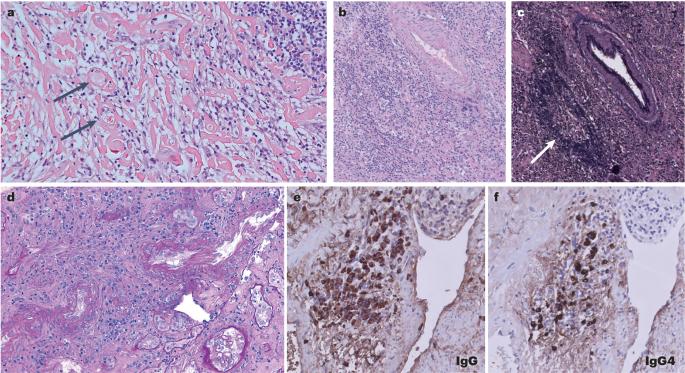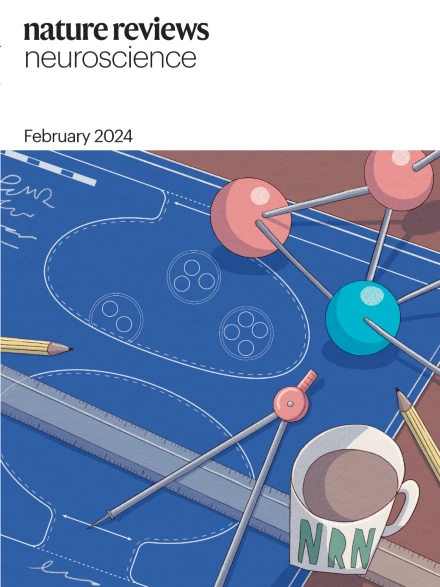igg4相关疾病和其他纤维炎性疾病
IF 32.7
1区 医学
Q1 RHEUMATOLOGY
引用次数: 0
摘要
igg4相关疾病(IgG4-RD)是一种纤维炎性疾病,通常以多器官受累为特征。其发病机制复杂,涉及遗传和环境因素,而免疫反应通常介导器官损伤和促进纤维化,这是该疾病的一个关键特征。然而,IgG4反应并非IgG4- rd所独有,在其他表型与IgG4- rd部分重叠的疾病中也可能遇到。尽管IgG4-RD具有临床和组织学特征,但缺乏有效的诊断标准往往使诊断具有挑战性,需要综合临床、放射学和血清学数据的多维方法。本综述涵盖了疾病驱动因素及其临床表型的最新进展,主要集中在潜在的IgG4-RD模拟物的鉴别诊断,即组织细胞增多症、淋巴细胞增殖性疾病、全身性血管增生症和其他免疫介导的疾病。该综述还提供了IgG4-RD治疗的示意图,包括糖皮质激素保留剂和新兴疗法的简要概述,从B细胞消耗单克隆抗体到细胞因子靶向药物,其中大多数目前正在随机临床试验中进行研究。本文章由计算机程序翻译,如有差异,请以英文原文为准。


IgG4-related disease and other fibro-inflammatory conditions
IgG4-related disease (IgG4-RD) is a fibro-inflammatory disorder usually characterized by multi-organ involvement. Its pathogenesis is complex and involves genetic and environmental factors, while immune responses usually mediate organ damage and promote fibrosis, which is a key feature of the disease. IgG4 responses, however, are not exclusive to IgG4-RD and can be encountered in other diseases with phenotypes that partially overlap that of IgG4-RD. Although IgG4-RD has clinical and histological hallmarks, the lack of validated diagnostic criteria often makes the diagnosis challenging, requiring a multi-dimensional approach that integrates clinical, radiological and serological data. The present Review covers recent advances in the understanding of disease drivers and its clinical phenotypes, mainly focusing on the differential diagnosis with potential IgG4-RD mimickers, namely histiocytoses, lymphoproliferative disorders, systemic vasculitides and other immune-mediated conditions. The Review also provides a schematic approach to IgG4-RD treatment, including a brief overview of glucocorticoid-sparing agents and emerging therapies, from B cell-depleting monoclonal antibodies to cytokine-targeting drugs, the majority of which are currently under investigation in randomized clinical trials. IgG4-related disease is a fibro-inflammatory disorder with a complex pathogenesis. Herein the authors review the latest developments in IgG4-related disease clinical phenotyping, pathophysiology and management, with a focus on the main mimics of this disease and how to approach issues related to differential diagnosis.
求助全文
通过发布文献求助,成功后即可免费获取论文全文。
去求助
来源期刊

Nature Reviews Rheumatology
医学-风湿病学
CiteScore
29.90
自引率
0.90%
发文量
137
审稿时长
6-12 weeks
期刊介绍:
Nature Reviews Rheumatology is part of the Nature Reviews portfolio of journals. The journal scope covers the entire spectrum of rheumatology research. We ensure that our articles are accessible to the widest possible audience.
 求助内容:
求助内容: 应助结果提醒方式:
应助结果提醒方式:


